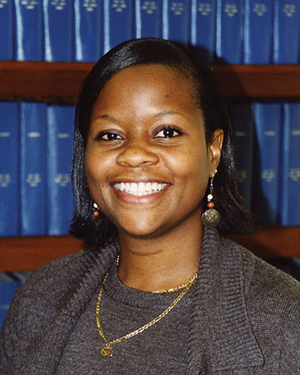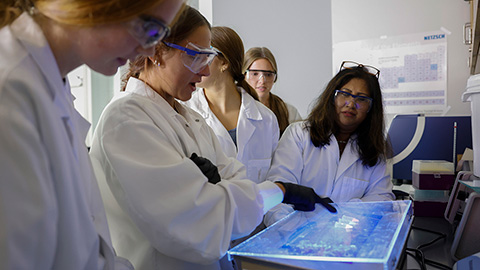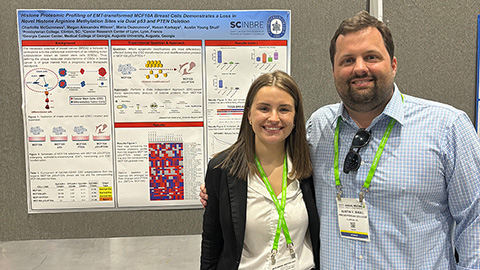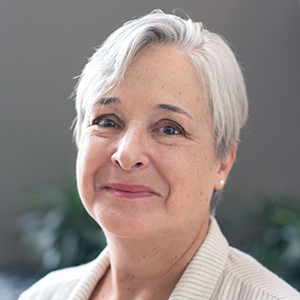Picking up the slack
I came to work at the American Society for Biochemistry and Molecular Biology about 16 months after Marion Sewer died. When I first heard her name, in connection with an undergraduate scholarship program, I assumed she was a long-gone figure in the society’s history.


She came into focus when I was putting together an article about the winners of that scholarship and I first saw the photo of her smiling in front of a shelf of heavy books. The photo accompanied Squire Booker’s remembrance of Sewer, which is where I learned that she died suddenly, so suddenly that her last article for this magazine was published days after her death, and that she was only 43 when she died. She remains forever that unlined face with the broad, arresting smile.
Sewer crammed more into her life than most of us can hope to do in twice the time. She was a professor at the Skaggs School of Pharmacy and Pharmaceutical Sciences at the University of California, San Diego. She published more than 44 papers and reviews, 30 of those as an independent investigator, on her work in lipid metabolism and steroid hormone biosynthesis.
Sewer worked hard at her science, but she found time to advocate for a diverse workforce, most notably (to us) as a leader of the ASBMB Minority Affairs Committee. She led research projects in increasing participation among underrepresented minorities and furthering student training. She was, as Booker wrote, “a mover and a shaker and a champion of those young scientists who are in desperate need of role models to affirm that their dreams and aspirations are indeed achievable.”
Sewer was a black woman in science. In an essay about imposter syndrome, she wrote about teachers and mentors disparaging her accomplishments, causing her to doubt herself. I didn’t know her, so I can’t speak to her motivations, but I imagine her work on behalf of minority students was inspired by a desire to counter such experiences.
Members of underrepresented minority groups are often at the helm of efforts to level the playing field. Their experiences inspire them to this work, but these responsibilities are piled on top of the need to, as Sewer wrote, “work twice as hard” as their non-URM colleagues.
That’s a heavy load. I’ll leave it at that.
NOTE: To mark Black History Month, the ASBMB created a timeline highlighting important achievements in the life sciences made by black scientists. You can download the pdf.
Enjoy reading ASBMB Today?
Become a member to receive the print edition four times a year and the digital edition monthly.
Learn moreGet the latest from ASBMB Today
Enter your email address, and we’ll send you a weekly email with recent articles, interviews and more.
Latest in Opinions
Opinions highlights or most popular articles

The tortoise wins: How slowing down saved my Ph.D.
Graduate student Amy Bounds reflects on how slowing down in the lab not only improved her relationship with work but also made her a more productive scientist.

How pediatric cataracts shaped my scientific journey
Undergraduate student Grace Jones shares how she transformed her childhood cataract diagnosis into a scientific purpose. She explores how biochemistry can bring a clearer vision to others, and how personal history can shape discovery.

Debugging my code and teaching with ChatGPT
AI tools like ChatGPT have changed the way an assistant professor teaches and does research. But, he asserts that real growth still comes from struggle, and educators must help students use AI wisely — as scaffolds, not shortcuts.

AI in the lab: The power of smarter questions
An assistant professor discusses AI's evolution from a buzzword to a trusted research partner. It helps streamline reviews, troubleshoot code, save time and spark ideas, but its success relies on combining AI with expertise and critical thinking.

How AlphaFold transformed my classroom into a research lab
A high school science teacher reflects on how AI-integrated technologies help her students ponder realistic research questions with hands-on learning.

Writing with AI turns chaos into clarity
Associate professor shares how generative AI, used as a creative whiteboard, helps scientists refine ideas, structure complexity and sharpen clarity — transforming the messy process of discovery into compelling science writing.

